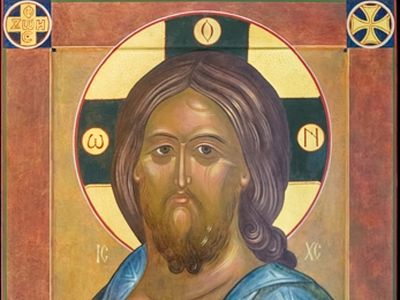Source: Orthodox Christian Network
We live in a culture of condemnation. We make ourselves champions of moral, political, and religious issues. We divide ourselves along political lines, and we jump upon every chance to point our finger at those who do not agree with our views. This has become all the more endemic with the rise of social media. We define ourselves in distinction from the other. We express our moral outrage over what a celebrity wears or the mistakes that they have made. We condemn the politician for holding a view contrary to ours. We even go as far as to judge the leaders of our Church for what we perceive to be violations of Orthodoxy!
To this culture of condemnation comes an ever-contemporary voice from the distant past. With gentleness and humility, Abba Isaac speaks to us saying, “Do not try to find out who is worthy and unworthy. Let all men stand equal before you in good.” Do you disagree with your neighbor’s political views? “Let your manner always be courteous and respectful to all. For love does not know how to be angry or lose its temper or to find fault in anyone out of passion.” Has a family member, friend, or a celebrity offended your moral sensibilities? Not only does Abba Isaac tell us to “Love sinners and not despise their faults”, but we are to “Cover the sinner… Indeed, encourage him for life and the mercy of the Lord will sustain you.” Do you feel that it is your Christian duty to deplore the failings of those around you? Abba Isaac tells you to “Avoid laying down the law, as you would flee from an untamed lion. Do not join in this with the children of the Church, nor with outsiders.”
Most people will concede that we are not to condemn. However, don’t we have the duty to admonish those who are living in a way contrary to that which we consider right? Abba Isaac reminds us, “Do not reprove anyone for any transgression, but in all things consider yourself responsible and the cause of sin.”
There are those who, hearing this, might say that if we follow Abba Isaac’s teaching, we will contribute to the moral ambiguity of our society and that to say nothing when confronted with evil is at best lax, if not itself a sin. Here we should remember that it is not idleness that Abba Isaac and Christ call us to; rather, they call us to love. It is only by the power of self-offering and unassuming love that we can help the other acquire freedom from passions and sin. Far from being lazy, this way of love requires us to take the path of martyric love and humiliation. I would like to conclude with a beautiful account of a contemporary saint who realized not only the above sayings in his life, but lived among us as another Abba Isaac.
On the feast of Theophany, it was the custom of Saint Porphyrios to walk from house to house, blessing with Holy Water and chanting hymns. One year, as he was walking through the neighborhood, he entered a house of prostitution. Of this encounter he said:
“They all kissed the cross. They were immaculately turned out with their colored skirts and so on. And I said to them, ‘Blessings on you all my children. God loves all of us. He is very good and sends rain on the righteous and the unrighteous. He is the Father of us all and is concerned for each one of us. Only we too must try to come to know Him and to love Him and to become good. Love Him and you will see how happy you will be.’
They looked at me with puzzlement. But something remained in their troubled little souls.
‘I’m delighted that God granted me the honor of coming here today to bless you,’ I said to them as I turned to go.”




